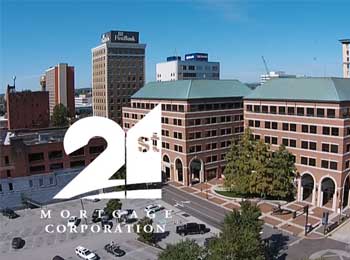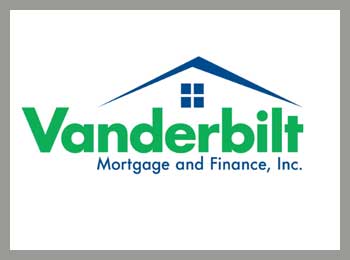When financing a manufactured or mobile home, two leading lending options are 21st Mortgage and Vanderbilt Mortgage.
But how do you decide which lender is better for your needs?
This in-depth guide examines the pros, cons, rates, fees, and key differences between 21st Mortgage and Vanderbilt Mortgage. Read on to learn which lender prevails so you can make the optimal financing decision.
A Brief Comparison Table
| Category | 21st Mortgage | Vanderbilt Mortgage |
| Loan Types | Mortgages, chattel, personal loans | Mortgages, chattel, personal loans |
| Min Credit Score | 600 | 550 |
| Down Payment | 3.5% minimum | 3% minimum |
| Interest Rates | From 5% APR | From 4.5% APR |
| Origination Fees | Up to 2% of loan | Up to 3% of loan |
| Closing Costs | $2,000 – $4,000 | $3,000 – $5,000 |
| Home Buying Process | Work with dedicated loan officer | Financing tied to Clayton Homes inventory |
| Payment Methods | Online, phone, mail, branches | Online, phone, mail, auto-debit |
| Customer Service | Excellent reputation | Mixed reviews |
| Pros | Competitive rates and costs, great service | Lower credit score requirements, large Clayton inventory |
| Cons | Slightly higher down payment | Mixed service reviews, higher fees |
Overview of 21st Mortgage
Founded in 1938, 21st Mortgage is a major lender specializing in manufactured home financing. They offer mortgages, personal loans, and more tailored to buyers of factory built homes.

Some key facts about 21st Mortgage:
- Provides financing for manufactured and modular homes
- Offers mortgages, chattel loans, personal loans
- Access to new and used manufactured homes
- Loans for land, home, or both combined
- Presence across the U.S. with over 400 lending centers
21st Mortgage funds over $4 billion in manufactured home loans per year. They have a strong focus on exceptional customer service for borrowers.
Overview of Vanderbilt Mortgage
Part of Clayton Homes, Vanderbilt Mortgage is one of the largest manufactured housing lenders in the U.S. They provide financing solutions for factory built homes.
Here is a quick look at Vanderbilt Mortgage:
- Specialize in manufactured home loans since 1957
- Offer land-home financing, chattel loans, personal loans
- Finance new and pre-owned manufactured homes
- Access to Clayton Homes’ large selection of inventory
- Loan officers located across the country
Vanderbilt Mortgage works closely with manufactured home builder Clayton Homes to provide one-stop financing. They serve over 170,000 homeowners.
Also Read: Comparison Between SoFi And Happy Money
Key Differences Between 21st Mortgage And Vanderbilt Mortgage
Till now we discussed about the basic’s of the two home lender. Let’s dive deeper and explore the differences between them:
1. Loan Types Offered
21st Mortgage and Vanderbilt Mortgage both offer various loan programs to suit different borrower needs:
Mortgage Loans
- Both lenders provide real estate home loans for manufactured housing on owned land
Chattel Loans
- These loans finance the home only, not the land. Offered by both companies.
Personal Loans
- 21st Mortgage and Vanderbilt Mortgage offer personal installment loans for buyers
Land-Home Financing
- Combines lending for both the home and land in one convenient loan
New vs Used Home Loans
- Both lenders finance new homes from manufacturers and pre-owned manufactured homes
When it comes to available loan programs, 21st Mortgage and Vanderbilt are very similar, providing mortgages, chattel lending, personal loans, and financing for owned land.
2. Comparing Interest Rates and Fees
Two major factors that impact affordability are the interest rate and fees charged:

Interest Rates
- Rates are based on credit, loan type, down payment, etc. Both lenders offer competitive pricing.
- 21st Mortgage rates start around 5% APR for excellent credit. Vanderbilt’s start around 4.5% for prime borrowers.
- Actual rates depend on the applicant’s financial profile. Both lenders may offer discounts.
Origination Fees
- 21st Mortgage charges up to 2% of the loan amount. Vanderbilt’s fees up to 3% of the loan total.
- On a $100,000 loan, 21st’s fee would be $2,000 max vs $3,000 for Vanderbilt.
Closing Costs
- 21st Mortgage closing costs range from $2,000 to $4,000 on average.
- Vanderbilt’s average closing costs are $3,000 to $5,000.
- Closing costs cover appraisal, application fees, etc. 21st appears to have slightly lower costs.
Based on advertised rates and fees, 21st Mortgage comes out slightly ahead on affordability for borrowers with excellent credit. But always get quotes from multiple lenders when rates and fees can vary.
3. Loan Eligibility and Qualification
To qualify for financing, borrowers must meet credit, income, and down payment requirements:
Credit Scores
- 21st Mortgage requires a minimum credit score of 600 for approval.
- Vanderbilt’s minimum credit score is 550.
Down Payments
- 21st Mortgage requires as little as 3.5% down for manufactured home loans.
- Vanderbilt asks for a minimum down payment of 3% of the purchase price.
Debt-to-Income Ratio
- Maximum DTI of 50% for 21st Mortgage borrowers.
- Vanderbilt also allows up to a 50% DTI ratio.
Also Read: Comparison Between Triad Financial And 21st Mortgage
Documentation
- Both lenders require standard income and identity verification. Two years of tax returns may be needed.
Vanderbilt Mortgage edges out 21st Mortgage slightly when it comes to minimum eligibility requirements. But always verify your personal approval chances by getting pre-qualified.
4. Buying a Home Through Each Lender
Here is an overview of the home buying process through 21st Mortgage vs Vanderbilt:
21st Mortgage
- Get pre-qualified then select your manufactured home
- Work with a 21st Mortgage loan officer
- Loan officer helps you through application process
- Underwriting verifies income, assets, creditworthiness
- Closing scheduled once approved
Vanderbilt Mortgage
- Get pre-qualified then browse Clayton Homes inventory
- Work with a Vanderbilt Mortgage loan officer
- Loan officer assists with application and documentation
- Underwriting reviews your eligibility
- Closing set once loan is approved
The process is straightforward with both lenders. Vanderbilt Mortgage’s affiliation with Clayton Homes gives buyers access to a large home inventory source.
Watch this review video:
5. Making Payments on Your Loan
Once your manufactured home loan closes, you must make regular payments to the lender. Here are key details:
Payment Methods
- 21st Mortgage accepts payments online, by phone, mail or at branches
- Vanderbilt also takes payments online, by phone, auto-debit, or mail
Grace Periods
- 21st Mortgage has a 10-day grace period after due date
- Vanderbilt offers a 15-day grace period before assessing late fees
Penalties
- 21st charges 5% late fees. Additional fees if 15+ days late.
- Vanderbilt’s late fee is also 5% of the unpaid monthly payment
Auto-Pay Discounts
- 21st Mortgage offers a 0.25% rate discount with auto-debit
- Vanderbilt gives a 0.125% rate reduction for auto-debit sign up
Both lenders make paying your loan on-time convenient through multiple methods. Auto-debit enrollment earns you a lower interest rate.
6. Customer Support and Satisfaction
How responsive each lender is to customer needs also impacts the borrowing experience:
21st Mortgage
- Customers give high marks for 21st Mortgage’s quality service
- Many compliments about friendly, knowledgeable staff
- Loan officers provide personalized guidance and support
- Online bill pay platform offers convenience
Vanderbilt Mortgage
- Mixed reviews on responsiveness and timeliness
- Loan officers helpful but support after closing gets mixed marks
- Online payment system experiences some technical glitches
For exceptional service throughout the financing process, 21st Mortgage appears to excel over Vanderbilt based on customer feedback.
Pros and Cons of Each Lender
To recap, here are the major advantages and disadvantages of 21st Mortgage and Vanderbilt Mortgage:
21st Mortgage Pros
- Wide variety of loan programs
- Competitive interest rates and costs
- Minimum credit score of 600
- Strong reputation for customer service
- Online bill pay portal for convenience
21st Mortgage Cons
- Requires slightly higher down payment
- Not affiliated with a home manufacturer
Vanderbilt Pros
- Minimum credit score of 550
- Access to Clayton Homes’ large selection of homes
- Slightly lower advertised rates for prime borrowers
- 15-day grace period before late fees
Vanderbilt Cons
- Mixed reviews of customer service
- Slightly higher origination fees
- Some issues reported with online payment system
For great service and the most loan programs, 21st Mortgage has an edge. But Vanderbilt offers borrowers with lower credit scores an opportunity for financing.
Also Read: Comparison Between Snap Finance And Progressive Leasing
Frequently Asked Questions (FAQs)
Vanderbilt Mortgage is owned by Clayton Homes. Clayton Homes manufactures factory-built and modular homes and is a subsidiary of Warren Buffett’s Berkshire Hathaway.
Vanderbilt Mortgage has relatively low credit score and down payment requirements starting at 550 and 3% down. So they can approve borrowers with less-than-perfect credit. Of course, higher scores get better rates. Overall, Vanderbilt offers manufactured home loans to a wide range of buyers.
Yes, Vanderbilt Mortgage provides financing for both new factory built homes from Clayton Homes and pre-owned manufactured housing. You can get a used manufactured home loan from Vanderbilt.
To make a payment by phone to 21st Mortgage, call 1-800-955-0021. This number connects you to 21st Mortgage’s automated payment system where you can pay your bill 24/7 using a credit card, debit card, or electronic check.
Final Thought
When comparing 21st Mortgage and Vanderbilt Mortgage, pay close attention to rates, fees, eligibility, and customer service ratings. Both lenders offer great manufactured home financing options. Check loan quotes from multiple providers and get pre-qualified to find the best loan program and lender for your needs.
